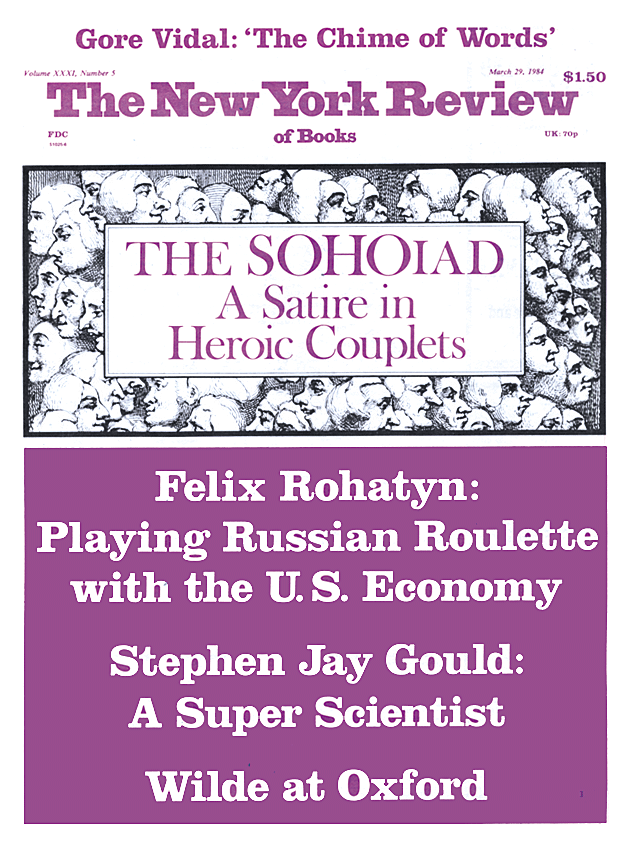In response to:
Sovietizing US Policy from the February 2, 1984 issue
To the Editors:
In a review of Nuclear War, Nuclear Peace, by Leon Wieseltier [NYR, February 2], George Ball writes,
Wieseltier has disdain for such writers as Jonathan Schell, who, after describing the enormity of a nuclear catastrophe, recommends only that we must “reinvent politics, reinvent the world.” He has even more disdain for E.P. Thompson who, like Schell, “argues backward from the apocalypse” to arrive at the “disgraceful” solution of unilateral disarmament.
This is incorrect on two counts. First, although Wieseltier does accuse me of many things, advocating unilateral nuclear disarmament is not one of them. The relevant sentences in Wieseltier’s book read as follows:
There is a false premise to Thompson’s argument, which may be called nuclear reductionism. He is arguing, like Schell, backward from the apocalypse: because everything may be destroyed by the bomb, everything may be explained by it.
As it happens, this charge is also unfounded: I have never made the ridiculous suggestion that “everything” can be explained by the bomb. Wieseltier’s method here is to discredit my work by attributing a nonsensical idea to me and then rebutting it. He is in actuality arguing only with himself. Second, I have not, in fact, advocated unilateral disarmament, as anyone who wants to read The Fate of the Earth—the work of mine under discussion by Wieseltier and Ball—can ascertain. Critics have a right to disagree with the authors whose work they are discussing, but they also have a responsibility to represent that work accurately—especially when “disgraceful” views are being attributed to people, and “disdain” is being poured forth.
Perhaps Mr. Ball, whose career in public service I have always admired, has misrepresented my position through inadvertance. If so, I hope he’ll set the record straight.
Jonathan Schell
New York City
George Ball replies:
In referring to the views of Jonathan Schell I was not expressing my own opinion, merely doing the reviewer’s job of summarizing Wieseltier’s writing as I interpreted it. I regret, as Mr. Schell points out, that my interpretation was faulty and that I did him a disservice.
I have no quarrel with Mr. Schell. I admire his eloquent and passionate description of mankind’s predicament facing nuclear annihilation, and I do not disparage an apocalyptic tone that may force many readers to recognize reality.
If his solution seems politically unattainable, I find politically feasible prescriptions inadequate. The sad fact is that nobody has a satisfactory answer to a problem too large, novel, and complex for the frozen thought patterns and institutional constraints that condemn us all to live under a nuclear sword of Damocles.
This Issue
March 29, 1984


